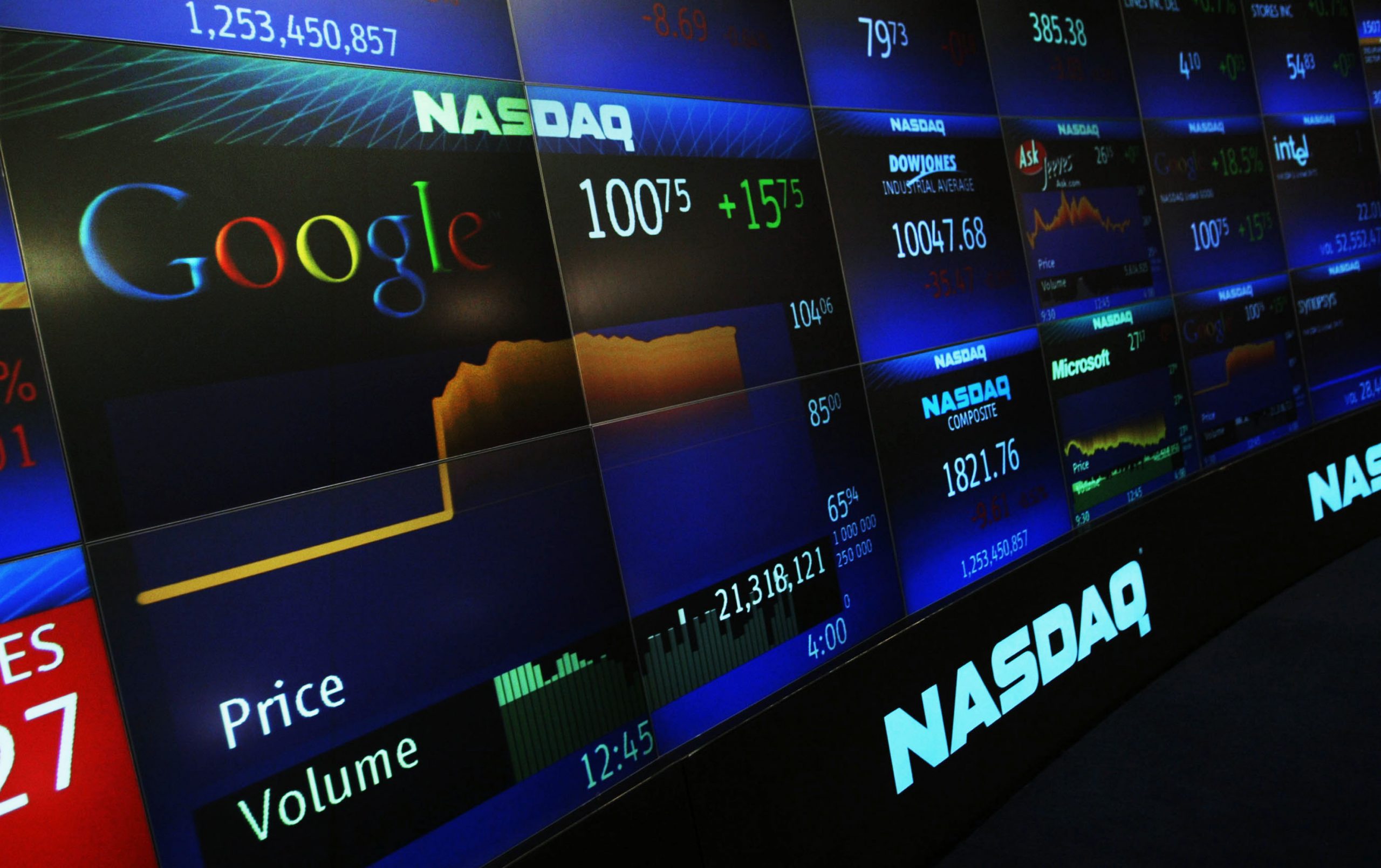Five Streaming Stocks to Watch
Analyst highlights from the Seeking Alpha site for financial news and opinion

Alphabet: “Cheap” for the Wrong Reasons
Alphabet (GOOGL) is cheap for several reasons—and they’re not very good ones. Recent earnings reports from Microsoft (MSFT) and Meta Platforms (META) provide some perspective.
They’re relevant because Microsoft competes with Alphabet’s Google unit in AI, while Meta competes with Google for advertising.
Alphabet ranks the “cheapest” among its peers in forward P/E (price to earnings), forward P/S (price to sales) and price to free cash flow. So on paper, Google certainly looks cheap.
But that’s only on paper. Google’s main business is advertising, and when you see how it’s performing and how the company is bringing itself into the 2020s with AI, there’s nothing to offer an investor. Its competitors at Meta and Microsoft have the technological and market advantages.
There’s a reason it’s cheap. It’s because it has wholly underperformed its competitors, both in the last week and the last year. Meta has course-corrected, and Microsoft has maintained its vision—and both have been
rewarded. Without either of these traits,
Alphabet has become a ho-hum investment.
This is a value trap, and Alphabet has been the poster child for it over the last few years. Management has run its course; it’s time for a change. Otherwise, Alphabet will remain a follower and not a leader in its main investment cases for ads or AI.
—Joe Albano, Tech Cache
Alphabet: Not Used to Playing Catch-up
Despite the hype surrounding ChatGPT and AI, Alphabet (GOOGL) will remain safe if adoption doesn’t grow too much for competitors like Bing, which is owned by Microsoft (MSFT).
By March 2023, market share for Alphabet’s Google search engine grew to 85.5% (+0.56 points year over year). Compare that with Bing at 8.23% (+0.18 points year over year).
While we remain convinced about the moat of its Google search engine, Alphabet continues to lag behind Microsoft’s growing lead, with profitability increasingly on the line.
We do not recommend anyone add Alphabet. It may be more prudent to wait for a
return to the March 2023 top of $95 for an
improved margin of safety.
—Juxtaposed Ideas
Comcast: More Than Cable
Many may consider Comcast (CMCSA) a dying business because millennials aren’t interested in Cable TV. The medium’s high prices and poor service certainly haven’t helped retain customers, either. As of April 2023, the number of Americans paying for cable TV has fallen below 50%.
Comcast’s largest segment is cable communications. Back in 2010, that segment was
responsible for 95% of the company’s revenue.
Since then, management has been diversifying the revenue stream to bring that figure down. By 2013, 64.6% of the full-year revenue came from the cable Communications
segment. And by 2022, it generated just 52% revenue.
Love it or hate it, it’s difficult to argue that Comcast is a well-run business with healthy net operating margins. It’s subject to evolution that began with Company’s acquisition of NBCUniversal and DreamWorks.
Anyone who thinks it’s just a cable TV provider bleeding revenue thanks to cord-cutters is not wrong, but they are also failing to grasp the company’s full narrative.
Since the low of $28.39 it reached in November 2022, Comcast has staged a remarkable price recovery, gaining 42.4% in just six months, while the SPDR S&P 500 ETF Trust gained 18.5%, the Invesco QQQ Trust Series 1 gained 24% and competitor Verizon (VZ)
remained flat.
Yet, it’s still undervalued, possibly by as much as 33%. That makes Comcast a buy for the dividend growth investor looking to hold a company with an A- credit grade, a solid balance sheet, good cash flow and strong growth prospects. It operates in an oligopoly where even the poorest service is not enough to turn away its customers.
Wait no longer to participate in the growth of this company.
—James Long
Warner Bros. Discovery: Not Entertained
Warner Bros. Discovery (WBD) reported
a mixed Q1 2023, surprising markets with a $1.1 billion loss at the group level. Its weak performance was reported shortly after Paramount (PARA) disclosed a similar net loss of $1.1 billion in Q1.
That indicated the challenges facing Warner Bros. Discovery are related to an industry-wide slowdown in cable TV and the film industry.
For the third quarter in a row, the company has failed to meet pro forma estimates at group level and has hit its balance sheet with restructuring expenses and asset write-downs.
I am also turning negative on the company’s enormous net debt position, which was $46.8 billion as of March 2023.
Increasingly, I view the Warner Bros. and Discovery merger as overhyped and overpromised—a project pushed by the acquiring company’s management team.
Considering the need to reduce debt and the requirement to invest in content, it’s
increasingly unlikely the company will be able to distribute profits to shareholders in the foreseeable future.
—Cavenagh Research
Fox: It’s Not Too Late To Dump It
While Fox Corp. (FOX) can certainly handle the $787.5 million Dominion settlement, it may be just the tip of the iceberg. A plethora of actual and potential lawsuits may be on the horizon.
Fox stock is down 15% over the past year. As a result, the company’s forward P/E (price to earnings) is only 9.2x. That relatively low valuation level, combined with a strong market position, may induce some investors to nibble on Fox stock.
However, the company continues to face significant monetary exposure to additional lawsuits as a result of the Dominion settlement—and that settlement appears to set a negative precedent for Fox.
In addition, the company appears to be set for significant headline risks for months—perhaps years. That being the case, investor sentiment will likely remain negative toward Fox for some time to come.
Too many “dark cloud risks” are swirling over the company. Some are likely to deliver even more shareholder capital into the pockets of plaintiffs.
—Michael Fitzsimmons
Disney: Earnings Miss and Subscriber Decline
The most recent quarterly earnings for Disney (DIS) fell short of profit estimates and showed a decline in subscriptions for Disney+. While the valuation has come down a lot over the last two years, shares aren’t looking overly attractive as profitability remains an issue.
While revenues are growing nicely, Disney’s profit performance remains weak. The company’s margins have been thin over the last couple of years because of investments in its streaming business. Whether creating content for 10 million users or 100 million users, the expenses are largely the same—when a streaming service has not hit sufficient scale yet, it’s bound to be unprofitable.
The profit performance explains why Disney’s share price has dropped so much from the highs it hit in early 2021 when it was trading at around $200 per share on the back of enthusiasm for streaming.
Disney looks neither expensive nor cheap. Netflix trades at a higher EBITDA multiple (earnings before interest, taxes, depreciation and amortization) of around 20, while Fox and Warner Bros. Discovery trade at substantially lower EBITDA multiples in the single-digit range.
While Disney undoubtedly was too expensive at the peak of the streaming euphoria, it’s more reasonably valued right now—but not overly attractive.
—Jonathan Weber, Cash Flow Club
These excerpts from Seeking Alpha Marketplace newsletters have been edited for brevity and published with permission from Seeking Alpha.






















